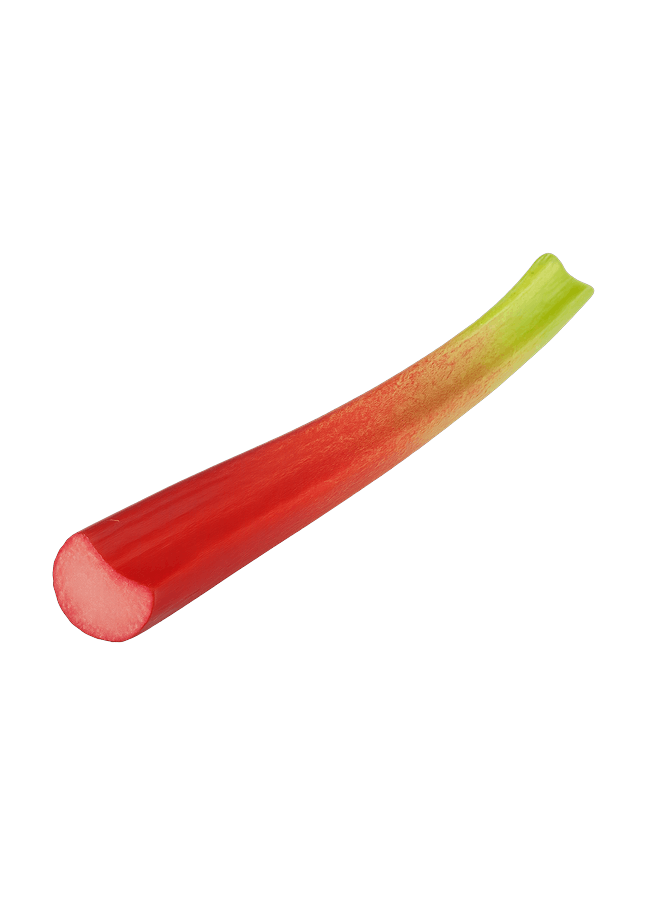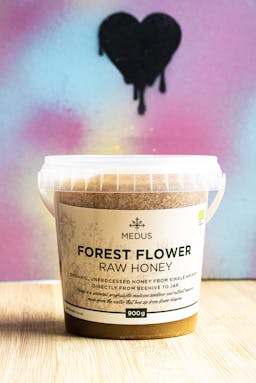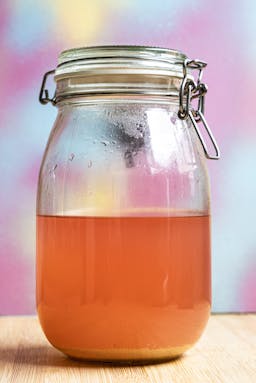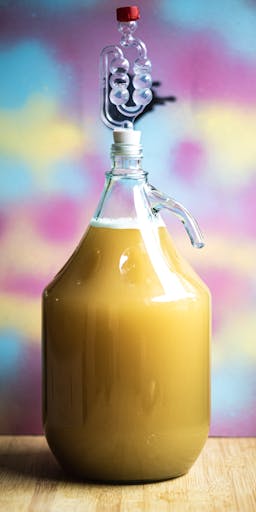Rhubarb Session Mead 2025
A light, sparkling mead made with floral honey and tart homegrown rhubarb. Slightly sweet and naturally carbonated, this session-strength mead was crafted for sipping on warm afternoons — refreshing, fruity, and just a little wild.
- ABV:
- 7.2%
- Style:
- Sparkling session mead
- Batch size:
- 5L

Details
What is Rhubarb Mead?
Rhubarb mead (a type of melomel) combines the crisp acidity of rhubarb with the natural sweetness of honey. Though not a traditional fruit mead, it’s gained popularity for its vibrant flavour and blush-pink hue. The tartness balances the honey beautifully, especially when made lightly sparkling.
What We Made
We used floral forest honey and a good amount of homegrown rhubarb from the freezer — simmered and steeped with pectic enzyme to draw out juice and clarity. The result is a lightly sweet, low(ish)-ABV mead with plenty of rhubarb character and a natural sparkle from bottle conditioning. It’s dry enough to be refreshing but sweet enough to show off the honey.



Production
Ingredients
- 850g forest flower honey
- 600–800g frozen rhubarb (simmered and strained)
- Water to 5L
- EC-1118 yeast
- Pectic enzyme
- Young's yeast nutrient
- 100g erythritol (for back-sweetening)
- 30–35g white sugar (for bottle conditioning)
Fermentation Process
The rhubarb was gently simmered and the juice allowed to cool before adding pectic enzyme and resting overnight. Honey was dissolved into the juice, topped up with water, and fermented at 20°C with EC-1118 yeast. OG was 1.055, aiming for a dry finish and later back-sweetened with erythritol to taste. Once clear and stable, it was primed and bottled for natural carbonation.
Aging Potential
Ready to drink after 2–3 weeks of bottle conditioning. Best enjoyed within 6 months for peak freshness and sparkle, though it may mellow pleasantly over time.